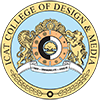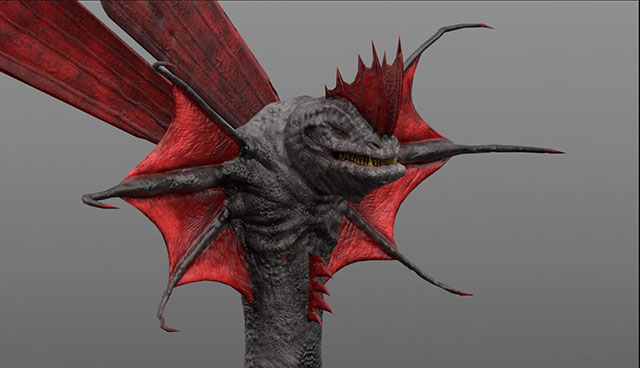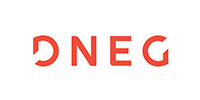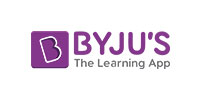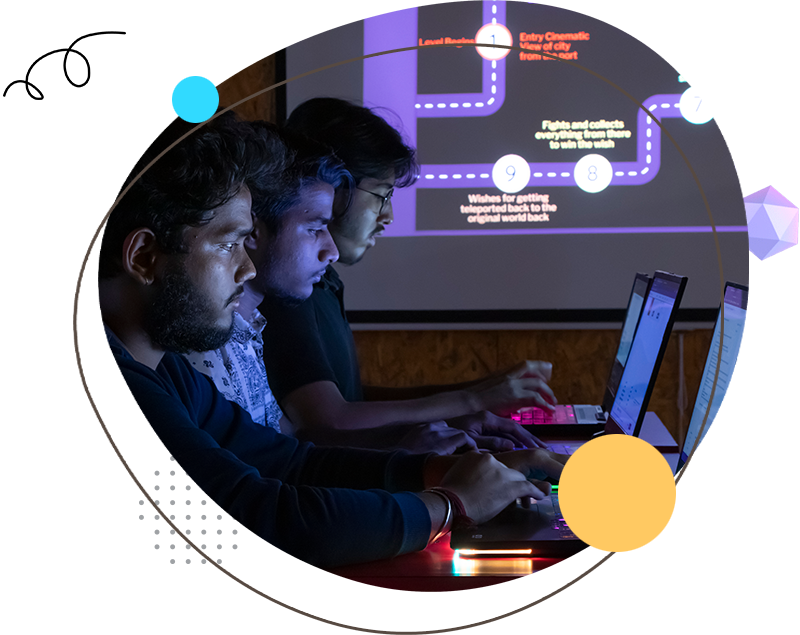
Course Overview
Get, Set to Design Games Outside the Realm of Imagination
The Bachelor's Degree in Game Art and Design at ICAT is a full-time program that offers intense practice in the art of crafting game aesthetics and skill of designing games in 2D, 3D, and more.
The program takes students through every step that grooms them as a game professional, right from understanding the design basics and documenting ideas to building what a gamer will love. On the road to make students as competent professionals, we ensure students get their hands on designing games for varied platforms including mobile, PC, Game Consoles, VR, AR, and more. This expands their opportunities towards their dream career.

Why Game Art and Design?
Be Part of the Fastest Growing Industry
Today, games are no more just for fun, they are seen as a free podium where one can achieve something and get motivated as an able person. It is a way of improving the memory power, cognitive health, decision making skills, and the most-needed social skills. Such reasons to play a game have made all from 6 year old to 80 year old to look for best games, leading to a high demand for skilled game professionals.
As per NASSCOM, at least two new game companies come up every month in India. Also, multinational game giants like EA (Electronic Arts) and UBISoft have their strong game development centres in India, and are expanding rapidly. This assures highly promising careers for the ones with fine game building skills.
Curriculum
The Learning Curve
Dear Student,Get Admission / Fees Details
* Required Fields
Skills to Build
Skills to Seek as Game Design Professional
-

Concept Art
-

2D Character Designing
-

2D Background Designing
-

3D Character Modelling
-

3D Environment Designing
-

3D Probes Designing
-

3D Vehicles and Weapons Modelling
-

Level Designing
-

Documentation
Teaching Methodology
Learning Beyond the Walls
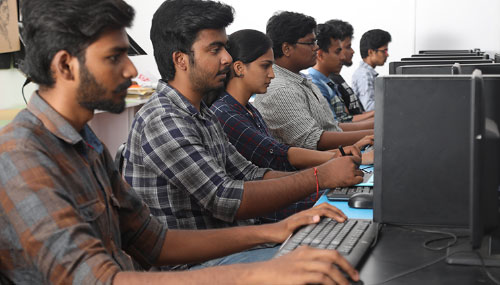
Research Based Learning
To make students proficient with the process of game production, students are insisted to prepare papers through detailed research on different topics in each module. This lets students to self explore through a lots of information, which is one of the best ways to increase retention of knowledge.

Learn the Techniques Live
As students of the Art genre, they are given the experience of life study drawing to understand the nuances in modelling. They are also taken for outdoor sessions, where the students get their light and shadow study.
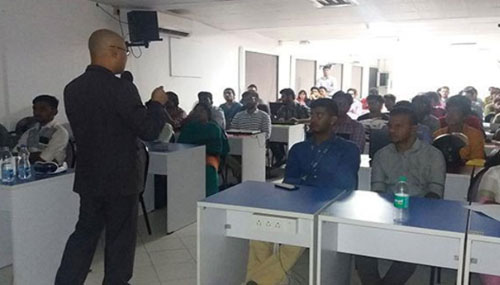
Hear from the Professionals
Experts from the game industry share their production experiences, technical knowledge, and industry standards to give the students their best of knowledge. They conduct seminars and workshops from time to time on topics of key learning.
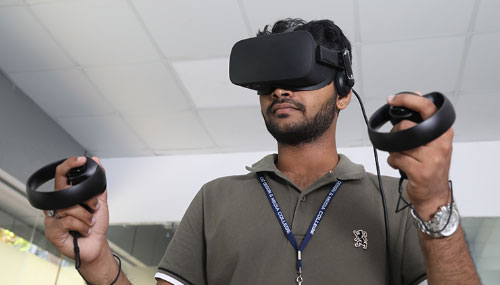
Keep in Pace with the Trending Technology
Hands-on experience on latest in technology like Virtual Reality (VR), Augmented Reality (AR), and Mixed Reality (MR) gives the students a cutting-edge over their counterparts in the field.
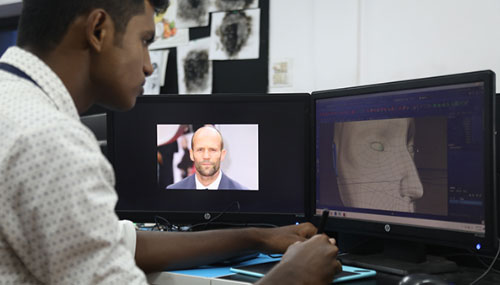
Mould Your Skills on Feedbacks
Exhibiting students’ skills through projects and research works to professionals, faculties, peers, and even public audience give the students the confidence in game building. The feedbacks they receive through such sessions are the perfect way for them to fine tune their skills.
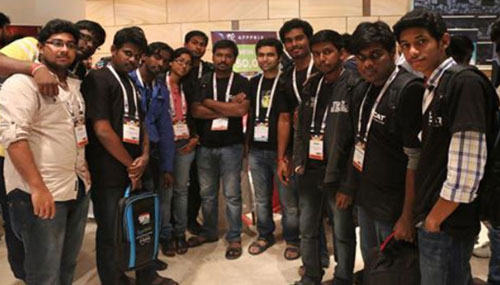
Compete Your Skills
Participating in competitions like Game Jam tell the students their proficiency level and help them identify their area of expertise/improvement. Also, participating in various conferences like NGDC (NASSCOM Game Developers Conference), IGDC, and GAFX give the students a thorough outlook of latest in the industry and technology.
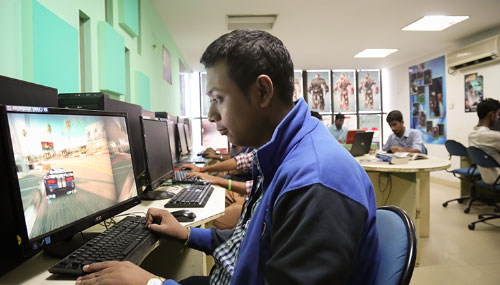
Watch It Live
Frequent visits to renowned game companies and related industries give the students a clear vision of how things work in real time. This makes a perfect preparation for employment.
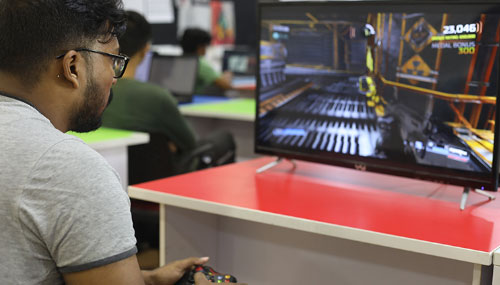
Practice the Professional Way
The curriculum at ICAT insists students to submit assignment, mini projects, major project, and portfolio with clear textual content that records their course of work. They get the practice of clearly scripting the Game Design Documents (GDD), Game Pitch document, Concept documents, and dissertations that will help them perform the professional way in their career.
Student Awards
Rise and Shine
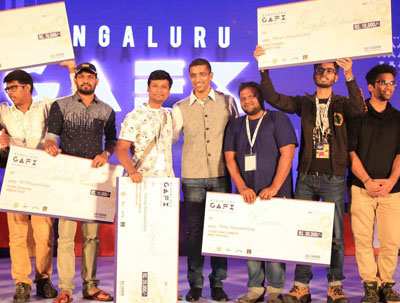
ICAT Student Won First PrizeGAFX CONFERENCE |
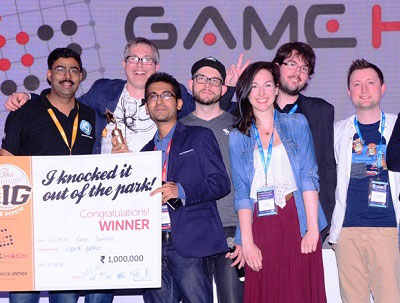
ICAT Alumni Wins a MillionPocket Gamer Connects |
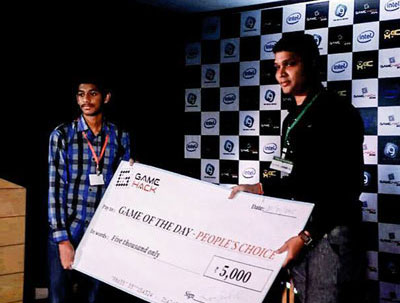
ICAT Student Won 2nd prize - ‘Black Hole’Gamehack |
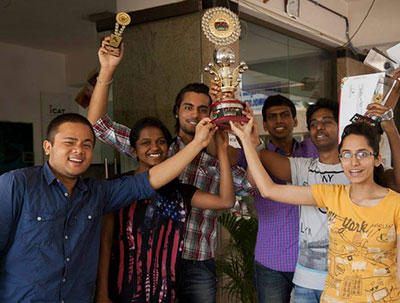
ICAT Students Won Runner-up AwardLa Fete Cultural Fest |
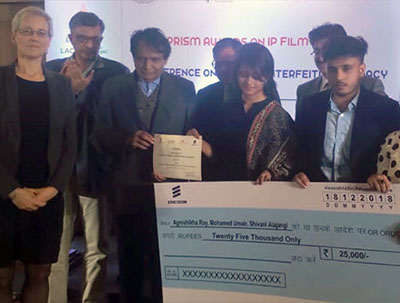
ICAT Student Won Runner-upIPGAF Competition |
Learning Facilities
Practical Learning

Learn by Doing – Right from the Basics
Exploring the possibilities of an imagination will help creators streamline their thoughts. At ICAT, students get to have this opportunity every day through best-in-class facilities.

Experiment Ideas with Industry-Standard Machines
The labs at ICAT campuses house high-configured machines loaded with all the necessary industry-standard software.

Play and Learn
The Gaming Lounge in the campuses comes as a unique feature for the game students to experience the gameplay of games of different genres.

Practice the Art
The game students have access to Art and Design Studios to seek first-hand experience on design.

The Knowledge Repository
Right from history of games to game building with latest technology, the students have access to all game building information through 100s of books and magazines. This helps them research beyond the class lectures and gain immense knowledge of the industry and current trends.

Common to All Departments
In addition to the specific facilities for each department, the campuses of ICAT College are loaded with spacious classrooms, common library with essential readings, locker facilities for students, air-conditioned halls, personal tutoring space, common working zone, students’ lounge, and so on.
Student Testimonial
Our Students Say
Alumni Success
Shining Stars
-
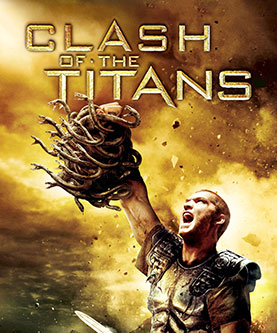
 Rajakanna
Rajakanna -
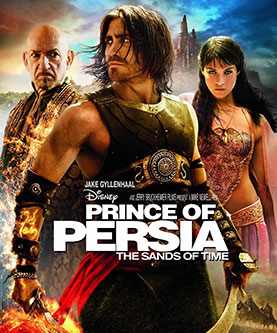
 Somasundaram
Somasundaram -
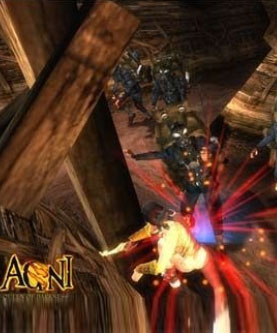
 Santosh Arya
Santosh Arya -
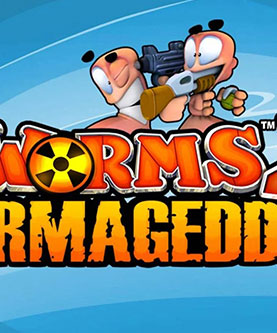
 Shukla Jayant Triveni
Shukla Jayant Triveni -
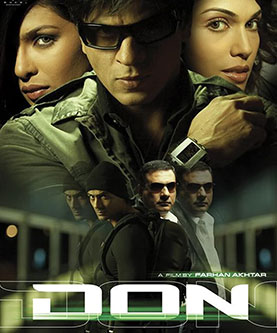
 Devrishi
Devrishi
Career Opportunities
Get Placed as a...
ICAT helps aspiring minds to achieve their cravings to the digital world with an exclusive Placement Cell that holds a record of 100% placement, till date. Every ICAT student is assured to get a good designation in a reputed company. By pursuing this Bachelor's Degree Game Art and Design course at ICAT, the students can get placed in well-known companies like Rockstar Games, Technicolor, Electronic Arts, TechTree etc. The following are the opportunities that an ICAT Bachelor's Degree Game Art and Design student can go for.
 Concept Artist
Concept Artist Character Designer
Character Designer Background Designer
Background Designer UI Designer
UI Designer 3D Character Modelling
3D Character Modelling 3D Props Modelling
3D Props Modelling
 3D Environment Modelling
3D Environment Modelling Vehicle and Weapons Modelling
Vehicle and Weapons Modelling Game Designer
Game Designer Level Designer
Level Designer Game Tester
Game Tester
Why Choose ICAT
Only at ICAT
The focus the program gives towards futuristic technologies and the global knowledge that veterans in our knowledge brigade brings help students stand apart as best in the industry.
Above these, the opportunity to work on Dissertations, create Portfolio, and take up Internship with renowned companies gives the sheer confidence and a cutting edge as an animation professional.
 100% placement
100% placement world-class curriculum
world-class curriculum Degree certified by eminent university
Degree certified by eminent university Highly equipped labs
Highly equipped labs frequent sessions from industry professionals
frequent sessions from industry professionals showcase events give the best learning experience
showcase events give the best learning experience
Top Placements
Meet Our Shining Stars
Top Recruiters
We Collaborate with 500+ Leading companies

Application Process
Become an ICATian
Step 1 : Fill the application form
Apply by Filling Application form.
Step 2 : Interview Process
Go through a direct communication with the Admission Team
Step 3 : Join ICAT
An offer letter will be send. Secure your seat by paying the admission fee.
International Professionals
Learn from the Veterans’ Perspective
| Name | Designation |
|---|---|
| Ernest Adams | Game Design Consultant, Trainer, and Author of several best-selling books in the Game industry |
| Ed Hooks | Member of Screen Actors Guild - AFTRA and Author of ‘Acting for Animators’ book |
| Prof. Rob Gibb | Subject Leader at Birmingham City University, UK |
| Prof. Bobbie Jones | Lecturer of Design & Illustration at Hereford University, UK |
| Prof. Sion Hughes | Professor of Art & Design and Dean of the Faculty of Arts at Sunway University, UK |
| Richie | Art Director at Zing Games |
| Karthikeyan | 3D Artist at Technicolor |
Campus Location
Study at Any of Our 3 State-of-the-Art Campuses
-
Chennai
153, Santhome High Road, Mylapore, Chennai - 600 004.
044 - 4293 4293, +91 - 95001 28555

-
Bangalore
424, Bommanahalli, Hosur Main Road, Bangalore - 560 068.
080 - 4110 7755, +91 - 96111 73607

-
Hyderabad
H.NO.3-1-30, S.Y.No:34/2 and 35, Bahadurguda, Saroornagar, L.B.Nagar, R.R.District, Hyderabad - 500 074
040 - 2447 7755, +91 - 75694 34552

FAQ
Still need anything to know?
This is the first item's accordion body. It is shown by default, until the collapse plugin adds the appropriate classes that we use to style each element. These classes control the overall appearance, as well as the showing and hiding via CSS transitions. You can modify any of this with custom CSS or overriding our default variables. It's also worth noting that just about any HTML can go within the .accordion-body, though the transition does limit overflow.
This is the second item's accordion body. It is hidden by default, until the collapse plugin adds the appropriate classes that we use to style each element. These classes control the overall appearance, as well as the showing and hiding via CSS transitions. You can modify any of this with custom CSS or overriding our default variables. It's also worth noting that just about any HTML can go within the .accordion-body, though the transition does limit overflow.
This is the third item's accordion body. It is hidden by default, until the collapse plugin adds the appropriate classes that we use to style each element. These classes control the overall appearance, as well as the showing and hiding via CSS transitions. You can modify any of this with custom CSS or overriding our default variables. It's also worth noting that just about any HTML can go within the .accordion-body, though the transition does limit overflow.

Admissions Enquiry
95001 28555